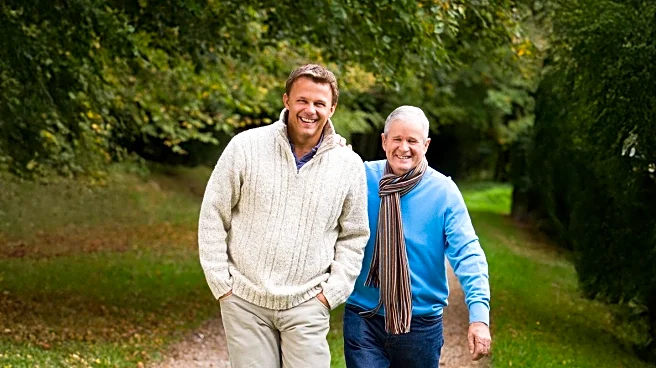What's Happening?
A family advice column has addressed a situation involving a 58-year-old father dating a 28-year-old woman, which has caused discomfort for his 26-year-old daughter. The daughter expressed her unease about the age difference, noting that the girlfriend is only two years older than herself. The column suggests that while the daughter's feelings are valid, the relationship between the two adults is ultimately their own decision. The advice includes taking time to understand personal feelings, discussing the situation with neutral parties, and considering the dynamics of age-gap relationships. Experts quoted in the column emphasize the importance of communication and setting boundaries while acknowledging the autonomy of the individuals involved.
Why It's Important?
This situation highlights the complexities and societal judgments often associated with age-gap relationships. It underscores the importance of communication within families when personal discomfort arises from such relationships. The advice provided in the column can serve as a guide for others facing similar situations, emphasizing the need for understanding and acceptance. The broader significance lies in addressing societal stereotypes and power dynamics that can accompany age-gap relationships, encouraging a more nuanced view of personal relationships. This can impact how families navigate personal boundaries and maintain healthy relationships despite differing opinions.
What's Next?
The column suggests that the daughter should consider having an open conversation with her father to express her feelings while respecting his autonomy. It also advises on strategies to ease the discomfort of meeting the new partner, such as bringing a friend for support and setting clear boundaries. The outcome of such discussions could influence the family dynamics and the daughter's relationship with her father. The advice encourages a balance between personal feelings and the acceptance of others' choices, which could lead to a deeper understanding and potentially strengthen family bonds.
Beyond the Headlines
The situation brings to light the ethical and cultural dimensions of age-gap relationships, challenging societal norms and stereotypes. It raises questions about autonomy, consent, and the role of family in personal relationships. The advice to practice 'radical acceptance' and 'compersion'—being happy for someone else's happiness—suggests a shift towards more empathetic and supportive family dynamics. This could lead to long-term changes in how age-gap relationships are perceived and discussed within families and society at large.









